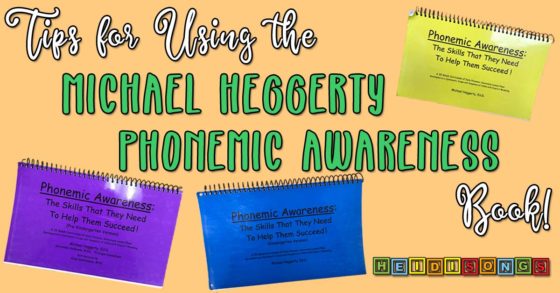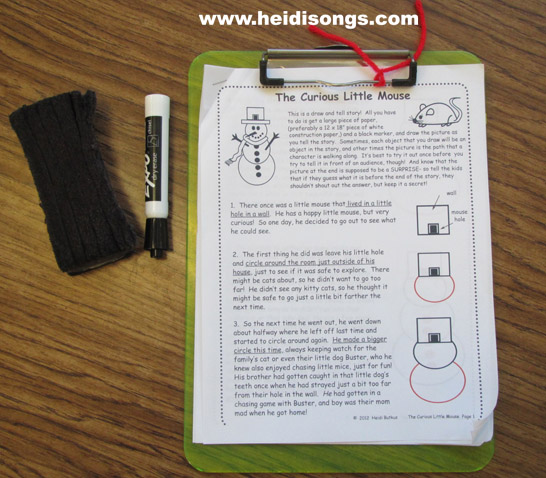Why Your Child Should Read for 20 Minutes Every Day
Have you heard the news? We've Moved to HeidiSongs.tv!
Our new website features an online video streaming service, updated blog posts at Heidisongs.blog, and a wealth of fresh resources designed to make learning even more fun and engaging.
You can also continue shopping for our educational products there and at our Teachers Pay Teachers store!
Head over to HeidiSongs.tv now and explore all the exciting new features.
See you there!
__________________________________________________________________________
This is a wonderful explanation of why it is important for your child to read every day. A great teacher at my school passed this information on to me, and I thought it was important to post here in the hope that more people can pass this around to those that matter most in children’s lives: their parents!
Why Your Child Should Read for 20 Minutes Every Day
“Why can’t I skip my 20 minutes of reading tonight?”
Let’s figure it out —MATHEMATICALLY!
Student A reads 20 minutes five nights of every week;
Student B reads only 4 minutes a night…or not at all!
Step 1: Multiply minutes a night x 5 times each week.
Student A reads 20 min. x 5 times a week = 100 mins./week
Student B reads 4 minutes x 5 times a week = 20 minutes
Step 2: Multiply minutes a week x 4 weeks each month.
Student A reads 400 minutes a month.
Student B reads 80 minutes a month.
Step 3: Multiply minutes a month x 9 months/school year
Student A reads 3600 min. in a school year.
Student B reads 720 min. in a school year.
Student A practices reading the equivalent of ten whole school days a year.
Student B gets the equivalent of only two school days of reading practice.
By the end of 6th grade if Student A and Student B maintain these same reading habits:
Student A will have read the equivalent of 60 whole school days
Student B will have read the equivalent of only 12 school days.
One would expect the gap of information retained will have widened considerably and so, undoubtedly, will school performance. How do you think Student B will feel about him/herself as a student?
Some questions to ponder:
Which student would you expect to read better?
Which student would you expect to know more?
Which student would you expect to write better?
Which student would you expect to have a better vocabulary?
Which student would you expect to be more successful in school….and in life?
WHY READ 30 MINUTES A DAY?
*If daily reading begins in infancy, by the time the child is five years old, he or she has been fed roughly 900 hours of brain food!
*Reduce that experience to just 30 minutes a week, and the child’s hungry mind lose 770 hours of nursery rhymes, fairy tales, and stories.
*A kindergarten student who has not been read aloud to could enter school with less than 60 hours of literacy nutrition. No teacher, no matter how talented, can make up for those lost hours of mental nourishment.
*Therefore…30 minutes daily = 900 hours
30 minutes weekly = 130 hours
Less than 30 minutes weekly = 60 hours
Guess you now understand why reading daily is so very important. Why not have family night reading? It is great to just shut off the television for 20-30 minutes and read… and share.

Source: U.S. Department of Education, America Reads Challenge (1999) “Start Early, Finish Strong: How to Help Every Child Become a Reader.” Washington D.C.
----------------------------------
Follow me! Did you enjoy this post? Do me a favor and share it with your friends! And follow this blog by signing up for my email updates, or follow on Bloglovin', or follow me on TPT! I'm also on Pinterest, Facebook, Twitter, Instagram, Google+ and YouTube, too! Don't forget to sign up for our email newsletter (at the bottom of this page) for special deals and promo codes that you won't find out about anywhere else.
Why Your Child Should Read for 20 Minutes Every Day
“Why can’t I skip my 20 minutes of reading tonight?”
Let’s figure it out —MATHEMATICALLY!
Student A reads 20 minutes five nights of every week;
Student B reads only 4 minutes a night…or not at all!
Step 1: Multiply minutes a night x 5 times each week.
Student A reads 20 min. x 5 times a week = 100 mins./week
Student B reads 4 minutes x 5 times a week = 20 minutes
Step 2: Multiply minutes a week x 4 weeks each month.
Student A reads 400 minutes a month.
Student B reads 80 minutes a month.
Step 3: Multiply minutes a month x 9 months/school year
Student A reads 3600 min. in a school year.
Student B reads 720 min. in a school year.
Student A practices reading the equivalent of ten whole school days a year.
Student B gets the equivalent of only two school days of reading practice.
By the end of 6th grade if Student A and Student B maintain these same reading habits:
Student A will have read the equivalent of 60 whole school days
Student B will have read the equivalent of only 12 school days.
One would expect the gap of information retained will have widened considerably and so, undoubtedly, will school performance. How do you think Student B will feel about him/herself as a student?
Some questions to ponder:
Which student would you expect to read better?
Which student would you expect to know more?
Which student would you expect to write better?
Which student would you expect to have a better vocabulary?
Which student would you expect to be more successful in school….and in life?
WHY READ 30 MINUTES A DAY?
*If daily reading begins in infancy, by the time the child is five years old, he or she has been fed roughly 900 hours of brain food!
*Reduce that experience to just 30 minutes a week, and the child’s hungry mind lose 770 hours of nursery rhymes, fairy tales, and stories.
*A kindergarten student who has not been read aloud to could enter school with less than 60 hours of literacy nutrition. No teacher, no matter how talented, can make up for those lost hours of mental nourishment.
*Therefore…30 minutes daily = 900 hours
30 minutes weekly = 130 hours
Less than 30 minutes weekly = 60 hours
Guess you now understand why reading daily is so very important. Why not have family night reading? It is great to just shut off the television for 20-30 minutes and read… and share.

Source: U.S. Department of Education, America Reads Challenge (1999) “Start Early, Finish Strong: How to Help Every Child Become a Reader.” Washington D.C.
----------------------------------
Follow me! Did you enjoy this post? Do me a favor and share it with your friends! And follow this blog by signing up for my email updates, or follow on Bloglovin', or follow me on TPT! I'm also on Pinterest, Facebook, Twitter, Instagram, Google+ and YouTube, too! Don't forget to sign up for our email newsletter (at the bottom of this page) for special deals and promo codes that you won't find out about anywhere else.










